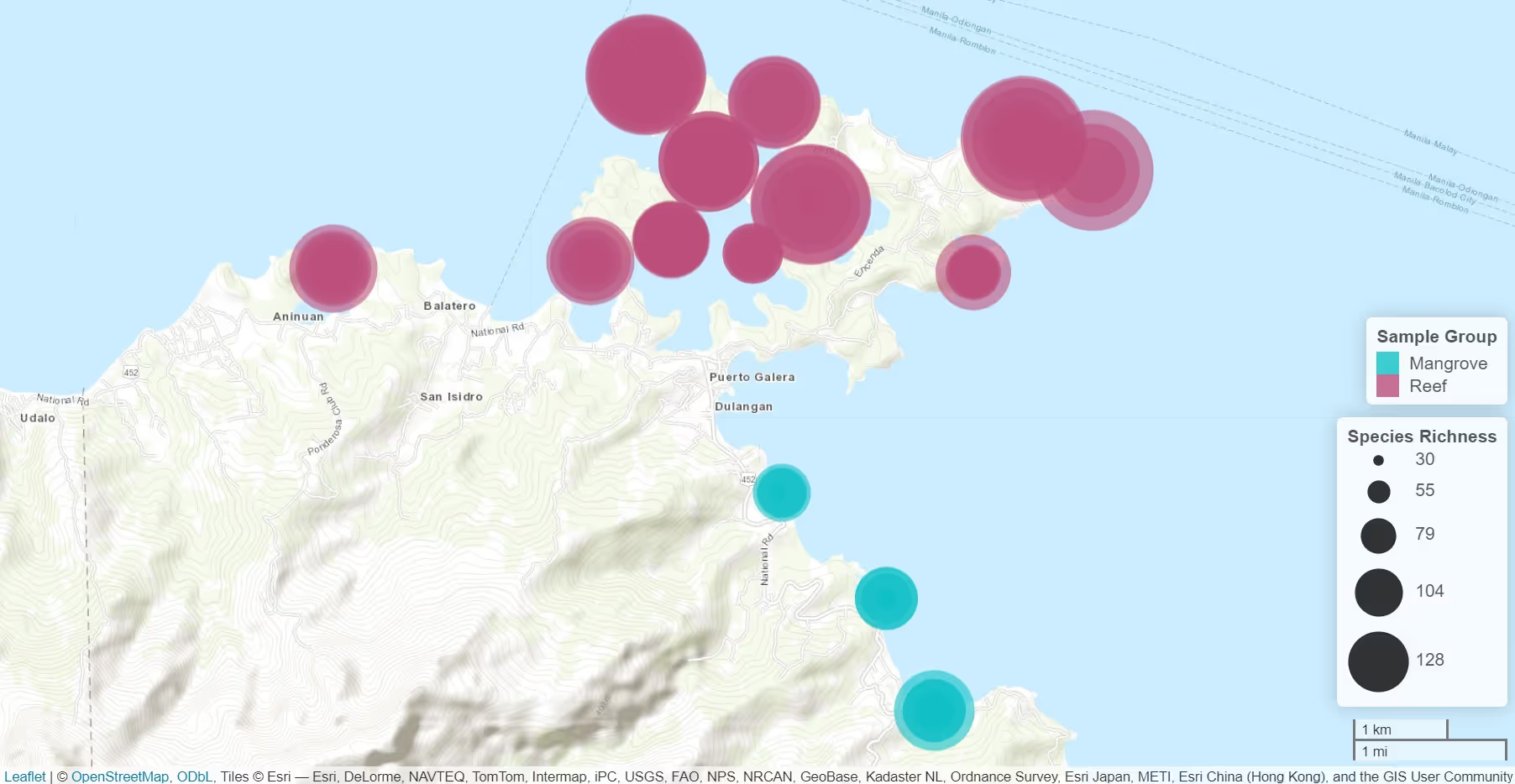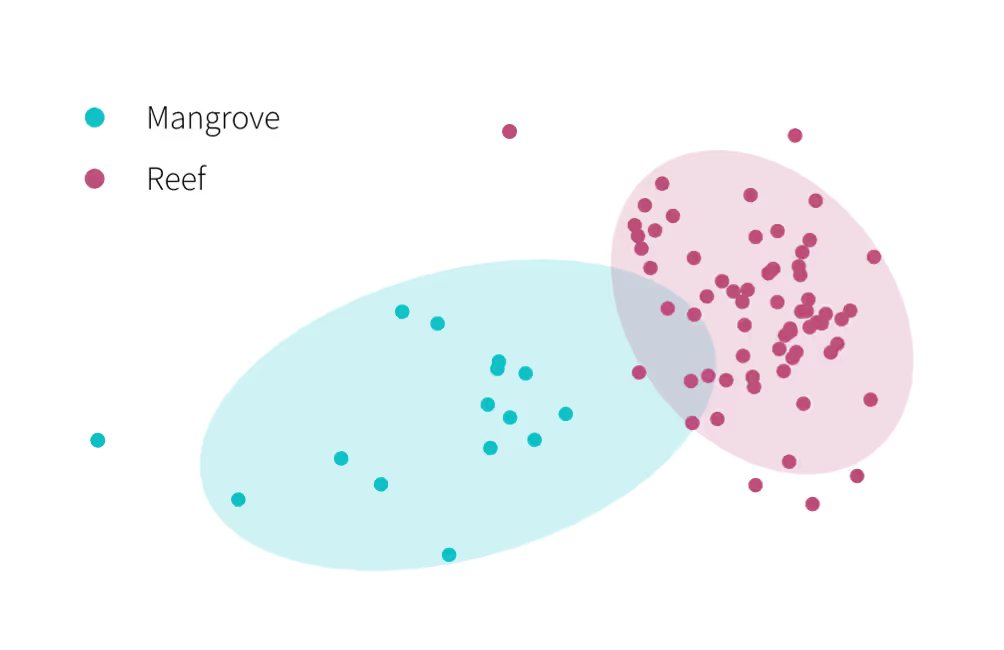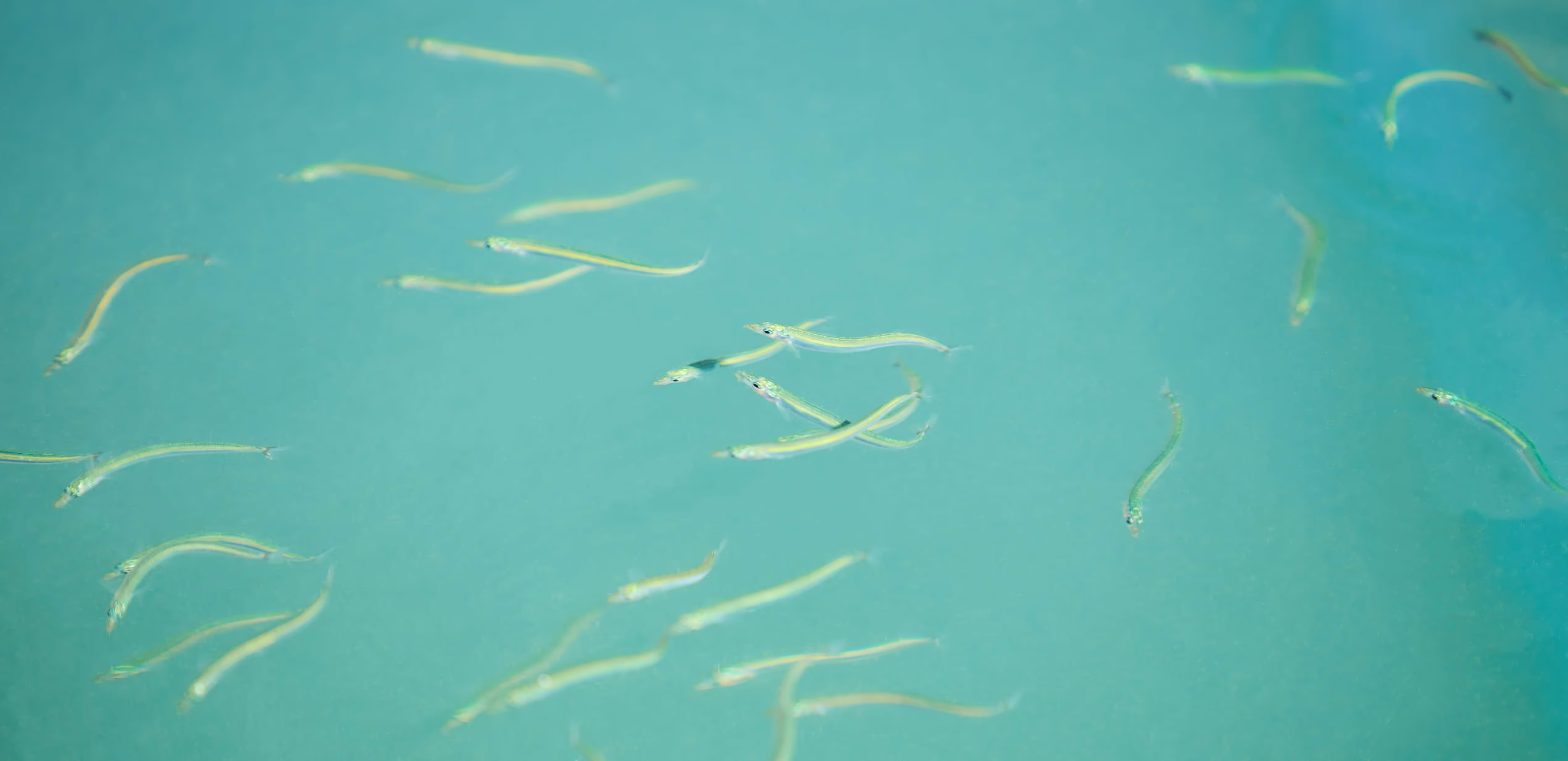A Spotlight on Mozambique's Coastal Biodiversity: eDNA Illuminates Conservation Priorities
Combining eDNA data with other spatial data layers to generate ecosystems insights at scale

A collaboration between
Project Snapshot
Overview
The Wildlife Conservation Society (WCS) conducted comprehensive eDNA sampling along the northern coast of Mozambique to establish biodiversity baselines for degraded coral reefs, mangroves, and seagrass beds. The insights are being used to inform the placement of community-managed fisheries areas and strengthen the strategic expansion of Mozambique's marine protected area (MPA) network.

The Challenge
Stretching over 1500 miles, Mozambique's diverse coastal habitats support rich biodiversity and millions of livelihoods. However, overfishing and habitat degradation increasingly threaten these ecosystems. To expand Mozambique's MPAs, WCS needed a practical way to rapidly gather a robust biodiversity baseline across the whole coastline to identify conservation priority areas.


Our Role
508 vertebrate species and 1808 eukaryote species across the 104 samplesIn 2022, WCS collected eDNA samples from across coral, mangrove, and seagrass sites along the northern Mozambique coastline using the NatureMetrics service. NatureMetrics analyzed the samples, detecting species across taxonomic groups, and converted this complex data into simple actionable nature insights using NatureMetrics metric offerings and Nature Intelligence Platform.
The eDNA insights are being combined with Earth Observation (EO) data and other biodiversity datasets collected by WCS. This comprehensive approach will allow WCS to explore the potential for seascape-scale biodiversity maps in which the eDNA data is used to groundtruth the EO data so that species distributions can be predicted across much larger scales, thereby increasing the level of insight that can be gained from these tools for informing conservation planning and large-scale monitoring.

The Findings

The Impact
The multifaceted baseline is guiding WCS's proposal for a new large-scale MPA incorporating a network of community-managed fisheries areas. Ongoing sampling will enable WCS to track biodiversity gains over time as protections take effect, ensuring conservation efforts translate into positive outcomes for nature and local communities, ultimately strengthening the marine conservation area network and Blue Economy in Mozambique.








.avif)